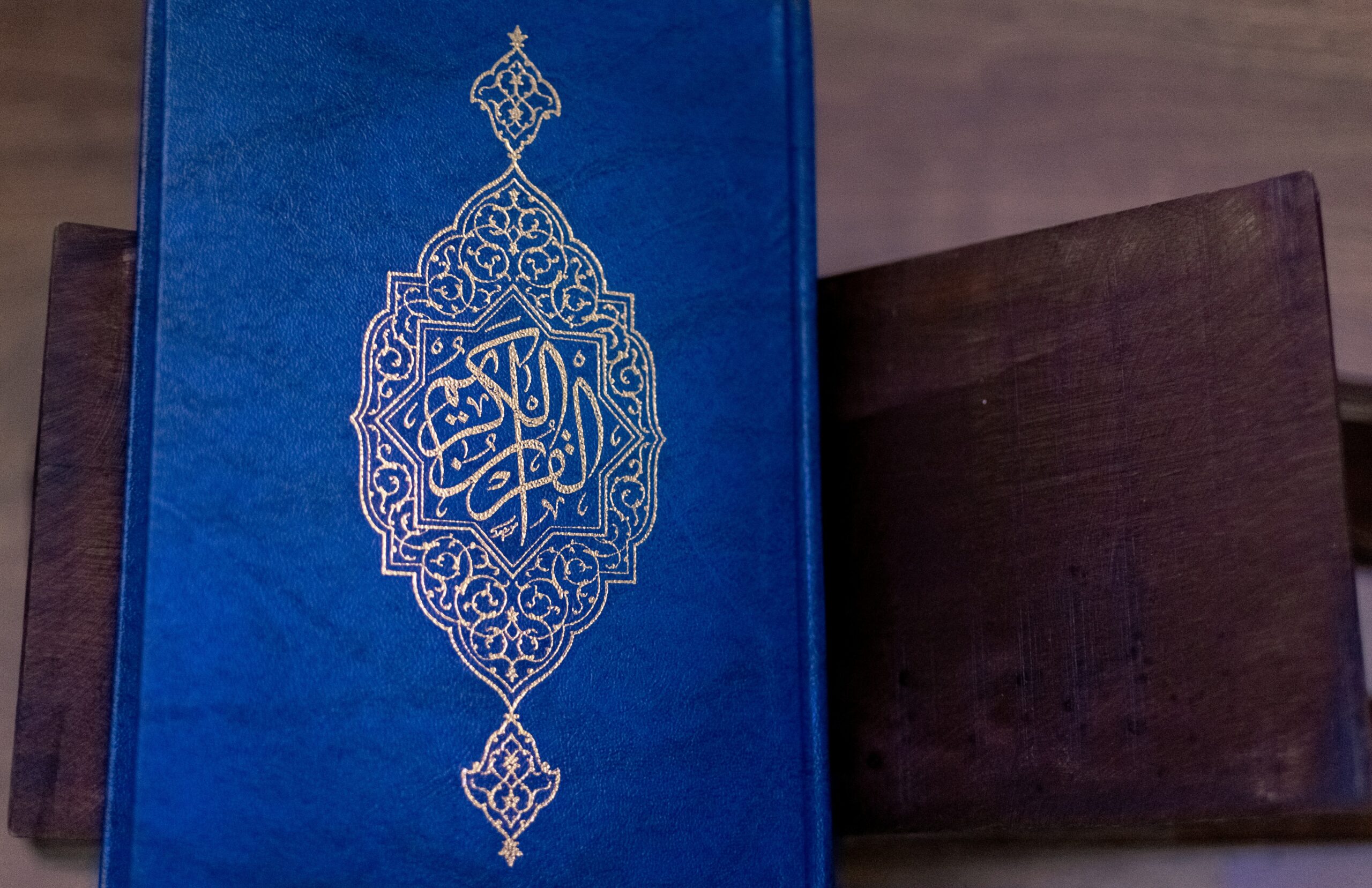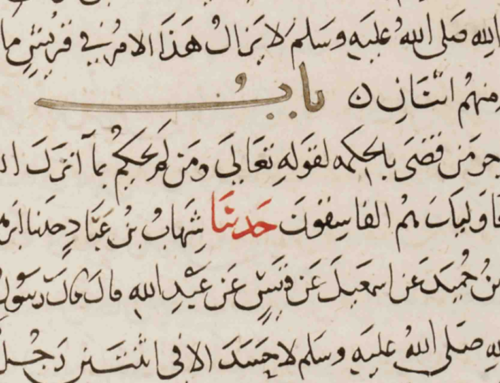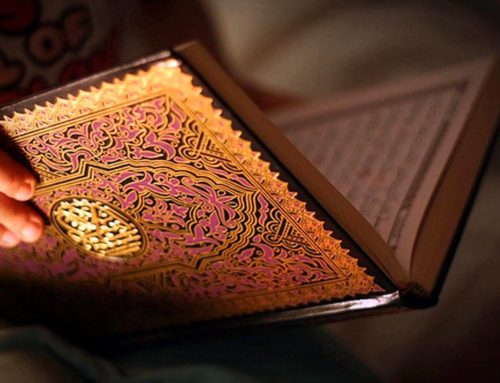Translated by Ibrahim Amin
Since the issue of rhetorical grandeur in the Qur’an has in recent times captivated the intrigue of many a critic, it seems appropriate to elaborate on the actual import of Qur’anic eloquence here. Imam Muhammad Qasim Nanautwi (may Allah shower His mercy upon him) writes on this point in Barahin Qasimiyyah:
“Balaghah (eloquence) is different from fasahah (articulacy). The former constitutes excellence in congruity and the latter excellence in itself. To elaborate, words are but garments for the meanings they contain, and garments differ in that sometimes they suit the wearer and sometimes they do not. Some of them are made from fine fabric and others from inferior material. Some garments are lavishly decorated and embroidered while others are lacking in such supplementary embellishments.
In the above analogy, appropriateness of words with their underlying meanings is what is meant by excellence in congruity, the refined choice of words used in articulacy by excellence in itself and the embroidery and embellishment that is additionally applied on the garment for decorative purposes should be classified as badi’ (innovativeness).
Based on this, anyone with sound reason can appreciate that fashioning speech and structuring its content are things different to and other than actual balaghah and fasahah, as an eloquent and articulate speech is not merely a name for its theme and structure. Similarly, grammatically correct sentence structures too are not sufficient to qualify as eloquent and articulate. First, consideration needs to be given to the afore-mentioned congruity. If it is found to be excellent, then balaghah (eloquence) is at its peak. Similarly, if the right choice of words has been made with discernment, then only will fasahah (articulacy) be believed to have reached its pinnacle.
Furthermore, this ‘congruity’ is nothing more than the name for the relationship between words and their meanings. And, as is known, relationships are always more subtle than their objects. Inevitably then, the knowledge of this relationship is more arcane than knowledge of words and meanings. And in cases where meanings themselves are subtle and only very finely distinguishable, this relationship naturally increases in intricacy and complexity. For this reason, the mind sometimes tends to accept two words as meaning the same thing, and hence as synonymous, whereas the reality is on the contrary.
As an example, let us take the words husn and jamal (both roughly meaning beauty). People generally assume they carry the same meaning, whereas the truth is that jamal is an objective quality found in the person attributed with it. The root of the word, j-m-l, guides us to this conclusion as another component of this root is jumlah (sentence), which is speech amalgamated from various components, and hence, jamal is a quality created by the orderly arrangement of various organs and their features. On the other hand, husn is a subjective quality given to the person associated with it by the beholder, depending upon the capacity in which the viewer is able to perceive it. Hence, husn is dependant upon the appreciation of others.
It follows from this that they are not synonymous words and, in fact, husn is actually the appreciation of jamal. If the eyes of the beholder are blemished or his nature perverse, it is not unlikely that they will not be able to appreciate the husn despite the presence of jamal or, to the contrary, will see husn where jamal does not exist.
Even those rhetoricians and experts in literature who have acquired distinction and fame in the subjects of their proficiency and have even earned praise from their critics, use the two words interchangeably without apprehension and treat them as wholly synonymous.
In summary, the majority of notable poets, rhetoricians and literary experts have failed to reach the apogee and essence of balaghah (eloquence), and if a few of them have managed to distinguish between few words, they can never claim to have complete knowledge of the essential congruity and cannot, therefore, know with certainty the occasions of their proper use. This is so because this science cannot be mastered but by one who possesses the following:
[1] His knowledge should transcend all reality.
[2] He should have complete command over and the ability to summon up all the words of at least one language.
[3] The reality and essence of all things are as manifest to him as tangible objects are to human eyes.
[4] He is fully aware of the universal and the specific qualifications as well as the general and the detailed.
By the knowledge of the universal and general is meant that one has a complete and absolute knowledge of, as a principle, the various properties of letters of the alphabet as well as of the various kind of relations and connections that exist in meanings and in the import of words, to convey the essence of which the speaker designates a particular word.
And by the knowledge of the specific and the detailed qualifications is meant knowing the exact inherent properties and import of each individual letter of the alphabet and to have an understanding of its relationship to meaning.”
(This last point appears to be alluding to the Science of the Properties of Letters, commonly referred to as ‘Ilm Asrar al-Huruf or ‘Ilm al-Abjad. It is one of the higher disciplines in the esoteric study of language. Classical contributors to this field include Imam al-Ghazali, Ibn Khaldun, Ibn Sina, Ibn Hayyan, etc. Shah Waliullah has also succinctly written in this field in Al-Khayr al-Kathir, a summary of which has been quoted in the footnote on his exposition of the Huruf Muqatta’at.
This science postulates that each letter of the alphabet carries unique intrinsic properties and meanings. Similarly, the combination of letters that creates a semantic value also signifies the amalgamation of the unique properties of its root letters, and hence, carries a deeper esoteric meaning.)
Source: Barahin Qasimiyyah (Jawab Turki ba Turki), pg. 117-123 – as quoted on footnote on page 237-239 – Al-‘Awn al-Kabir Sharh al-Fawz al-Kabir – Mufti Sa’id Ahmad Palanpuri – Maktabah Hijaz, Deoband – Date unknown.






